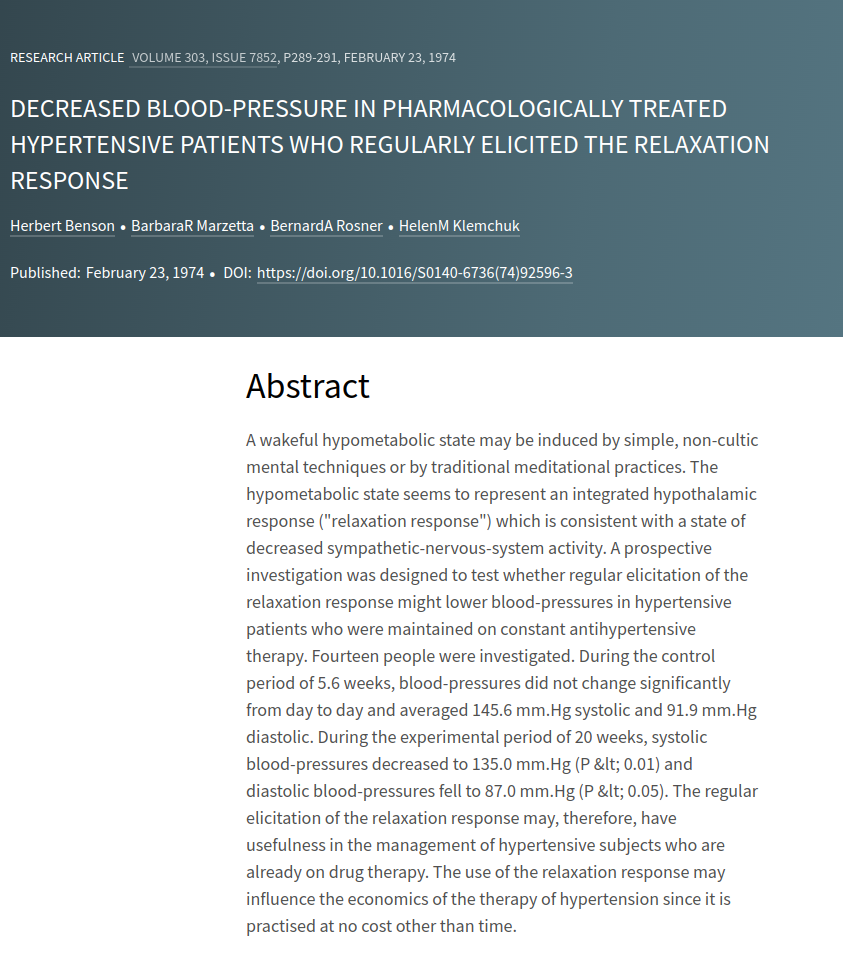A wakeful hypometabolic state may be induced by simple, non-cultic mental techniques or by traditional meditational practices. The hypometabolic state seems to represent an integrated hypothalamic response (“relaxation response”) which is consistent with a state of decreased sympathetic-nervous-system activity. A prospective investigation was designed to test whether regular elicitation of the relaxation response might lower blood-pressures in hypertensive patients who were maintained on constant antihypertensive therapy. Fourteen people were investigated. During the control period of 5.6 weeks, blood-pressures did not change significantly from day to day and averaged 145.6 mm.Hg systolic and 91.9 mm.Hg diastolic. During the experimental period of 20 weeks, systolic blood-pressures decreased to 135.0 mm.Hg (P < 0.01) and diastolic blood-pressures fell to 87.0 mm.Hg (P < 0.05). The regular elicitation of the relaxation response may, therefore, have usefulness in the management of hypertensive subjects who are already on drug therapy. The use of the relaxation response may influence the economics of the therapy of hypertension since it is practised at no cost other than time.
Decreased Blood-Pressure in Pharmacologically Treated Hypertensive Patients Who Regularly Elicited the Relaxation Response
Publication
The Lancet
Volume 303, Issue 7852, P289-291
Abstract
Web and Email Links
Related Listings
Journal
Neurobiology of Stress
Journal devoted to the neurobiology of stress
Journal
NeuroReport
Previous research indicates that long-term meditation practice is associated with altered resting electroencephalogram patterns, suggestive of long lasting changes in brain activity. We hypothesized that meditation practice might also be associated with changes in the brain's physical structure. Magnetic resonance imaging was used to assess cortical thickness in 20 participants with extensive Insight meditation experience, which involves focused attention to internal experiences. Brai […]
Journal
Minn Med.
Although the physiological and biochemical changes that occur during the acute stress response have been well-characterized, the contrasting changes that underlie the relaxation response evoked by various mind-body techniques are less understood. To help guide future mind-body research, we present a conceptual model that integrates patterns of change at the physiological and molecular levels. In addition, we point to future research opportunities and discuss how repeated elicitation o […]

